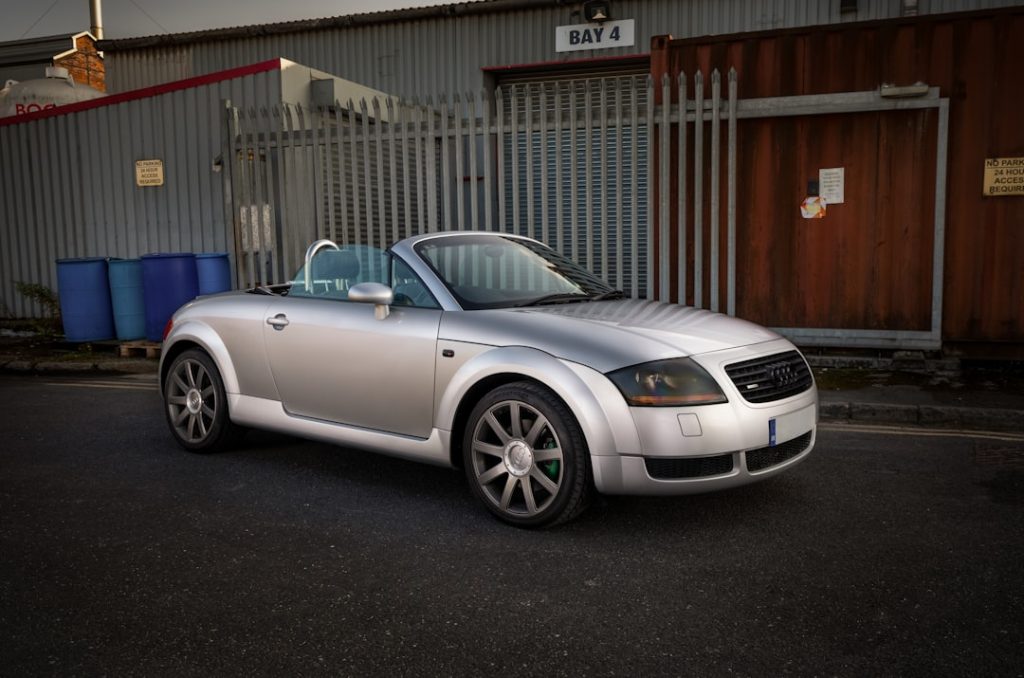In the contemporary automotive marketplace, the significance of website marketing for car dealers cannot be overstated. With the proliferation of digital technology, consumers increasingly turn to the internet to research vehicles, compare prices, and read reviews before making a purchase. A well-optimized website serves as a virtual showroom, allowing dealers to showcase their inventory, highlight special offers, and provide essential information about their services.
This digital presence is not merely an extension of traditional marketing; it is a fundamental component of a dealer’s overall strategy to attract and retain customers. Moreover, the shift towards online shopping has accelerated in recent years, particularly in the wake of the COVID-19 pandemic. Consumers have become accustomed to browsing and purchasing products online, including automobiles.
As a result, car dealers must recognize that their website is often the first point of contact with potential buyers. A robust online marketing strategy can significantly enhance visibility, drive traffic to the site, and ultimately lead to increased sales. By investing in website marketing, car dealers can position themselves competitively in a crowded marketplace and cater to the evolving preferences of modern consumers.
Key Takeaways
- A strong website marketing strategy is crucial for car dealers to reach potential buyers and drive sales.
- Creating a user-friendly and engaging website is essential to keep visitors interested and encourage them to explore further.
- Utilizing SEO techniques can significantly increase a car dealer’s online visibility and attract more potential buyers.
- Leveraging social media marketing is an effective way to reach a wider audience and engage with potential car buyers.
- Implementing email marketing can help nurture leads and drive sales by keeping potential buyers informed about promotions and new inventory.
Creating a User-Friendly and Engaging Website
A user-friendly website is crucial for car dealers aiming to convert visitors into customers. The design should prioritize ease of navigation, ensuring that potential buyers can effortlessly find the information they seek. This includes intuitive menus, clear calls-to-action, and a responsive layout that adapts seamlessly to various devices, including smartphones and tablets.
For instance, incorporating a search function that allows users to filter vehicles by make, model, price range, and other criteria can significantly enhance the user experience. When visitors can quickly locate their desired vehicles or services, they are more likely to stay on the site longer and engage with the content. Engagement is another critical aspect of website design.
High-quality visuals, such as professional photographs and videos of vehicles, can captivate visitors and provide them with a more immersive experience. Additionally, integrating features like virtual tours or 360-degree views of cars can further enhance engagement by allowing potential buyers to explore vehicles in detail from the comfort of their homes. Furthermore, incorporating informative content such as blog posts about car maintenance tips or industry trends can position the dealership as an authority in the automotive space while keeping visitors on the site longer.
Utilizing Search Engine Optimization (SEO) to Increase Online Visibility

Search Engine Optimization (SEO) is an essential tool for car dealers looking to enhance their online visibility. By optimizing their websites for search engines like Google, dealers can improve their rankings in search results, making it easier for potential customers to find them. This involves a combination of on-page and off-page strategies.
On-page SEO includes optimizing website content with relevant keywords that potential buyers are likely to search for, such as “used cars for sale in [location]” or “best car dealerships near me.” By strategically placing these keywords in titles, headings, and throughout the content, dealers can increase their chances of appearing in search results. Off-page SEO is equally important and involves building backlinks from reputable websites to enhance domain authority. For example, collaborating with local automotive blogs or news outlets to feature articles about the dealership can generate valuable backlinks while also driving traffic from those sites.
Additionally, maintaining an active presence on platforms like Google My Business can improve local SEO efforts by ensuring that the dealership appears in local searches and Google Maps results. By effectively implementing SEO strategies, car dealers can significantly increase their online visibility and attract more potential buyers.
Leveraging Social Media Marketing to Reach Potential Buyers
| Metrics | Value |
|---|---|
| Number of Social Media Followers | 10,000 |
| Engagement Rate | 5% |
| Click-Through Rate (CTR) | 3% |
| Conversion Rate | 2% |
| Reach | 50,000 |
Social media marketing has emerged as a powerful tool for car dealers seeking to connect with potential buyers. Platforms such as Facebook, Instagram, Twitter, and TikTok offer unique opportunities to engage with audiences in a more personal and interactive manner. By creating compelling content that showcases vehicles, shares customer stories, or highlights dealership events, car dealers can foster a sense of community and build brand loyalty.
For instance, posting behind-the-scenes videos of new arrivals or customer testimonials can humanize the brand and create a relatable image that resonates with potential buyers. Moreover, social media advertising allows dealers to target specific demographics based on location, interests, and behaviors. This targeted approach ensures that marketing efforts reach individuals who are more likely to be interested in purchasing a vehicle.
For example, a dealership could run ads promoting special financing offers specifically aimed at young professionals or families looking for spacious SUVs. Additionally, utilizing social media analytics tools can help dealers track engagement metrics and refine their strategies based on what resonates most with their audience. By leveraging social media effectively, car dealers can expand their reach and engage with potential buyers in meaningful ways.
Implementing Email Marketing to Nurture Leads and Drive Sales
Email marketing remains one of the most effective channels for nurturing leads and driving sales in the automotive industry. By collecting email addresses through website sign-ups or during customer interactions at the dealership, car dealers can build a targeted email list that allows them to communicate directly with potential buyers. Crafting personalized email campaigns that provide valuable content—such as exclusive offers, vehicle maintenance tips, or updates on new inventory—can keep the dealership top-of-mind for recipients.
Segmentation is key in email marketing; by categorizing leads based on their interests or stage in the buying process, dealers can tailor their messages accordingly. For instance, first-time buyers may benefit from educational content about financing options or vehicle features, while repeat customers might appreciate loyalty rewards or trade-in offers. Additionally, automating email campaigns can save time while ensuring timely communication with leads.
By implementing effective email marketing strategies, car dealers can nurture relationships with potential buyers and guide them through the sales funnel.
Incorporating Customer Testimonials and Reviews to Build Trust

In an industry where trust plays a pivotal role in purchasing decisions, incorporating customer testimonials and reviews on a dealership’s website is essential. Positive feedback from satisfied customers serves as social proof that can significantly influence potential buyers’ perceptions of the dealership. Displaying testimonials prominently on the homepage or dedicated review pages can help establish credibility and foster trust among visitors who may be hesitant about making a significant investment in a vehicle.
Moreover, actively encouraging customers to leave reviews on platforms like Google My Business or Yelp can enhance the dealership’s online reputation. Responding to reviews—both positive and negative—demonstrates that the dealership values customer feedback and is committed to providing excellent service. For example, thanking customers for their positive reviews while addressing any concerns raised in negative feedback shows transparency and accountability.
By prioritizing customer testimonials and reviews in their marketing strategy, car dealers can build trust with potential buyers and differentiate themselves from competitors.
Offering Special Promotions and Incentives to Drive Traffic to the Website
Special promotions and incentives are powerful tools for driving traffic to a car dealer’s website while enticing potential buyers to take action. Limited-time offers—such as discounted prices on select models or special financing rates—create a sense of urgency that encourages visitors to explore the dealership’s inventory further. For instance, promoting a “Spring Sales Event” with exclusive deals on new arrivals can attract attention and motivate customers to visit the website or showroom.
In addition to price reductions, offering incentives such as trade-in bonuses or complimentary maintenance packages can further entice potential buyers. These promotions not only enhance the perceived value of purchasing from the dealership but also provide an opportunity for dealers to capture leads through online forms or sign-ups. By effectively promoting these special offers through various channels—such as social media, email marketing, and website banners—car dealers can drive traffic to their websites while increasing conversion rates.
Analyzing and Measuring the Effectiveness of Website Marketing Strategies
To ensure that website marketing strategies are effective and yielding desired results, car dealers must prioritize analysis and measurement. Utilizing tools such as Google Analytics allows dealers to track key performance indicators (KPIs) such as website traffic, bounce rates, conversion rates, and user behavior on the site. By analyzing this data, dealers can gain insights into which marketing efforts are driving traffic and which areas may require improvement.
Additionally, monitoring metrics related to specific campaigns—such as email open rates or social media engagement—can provide valuable feedback on audience preferences and behaviors. For example, if an email campaign promoting a new vehicle model receives high open rates but low click-through rates, it may indicate that while the subject line was compelling, the content did not resonate with recipients. Regularly reviewing these metrics enables car dealers to refine their strategies continuously and allocate resources effectively toward initiatives that yield the best results.
By embracing data-driven decision-making in their website marketing efforts, car dealers can optimize their strategies for maximum impact in an ever-evolving digital landscape.



